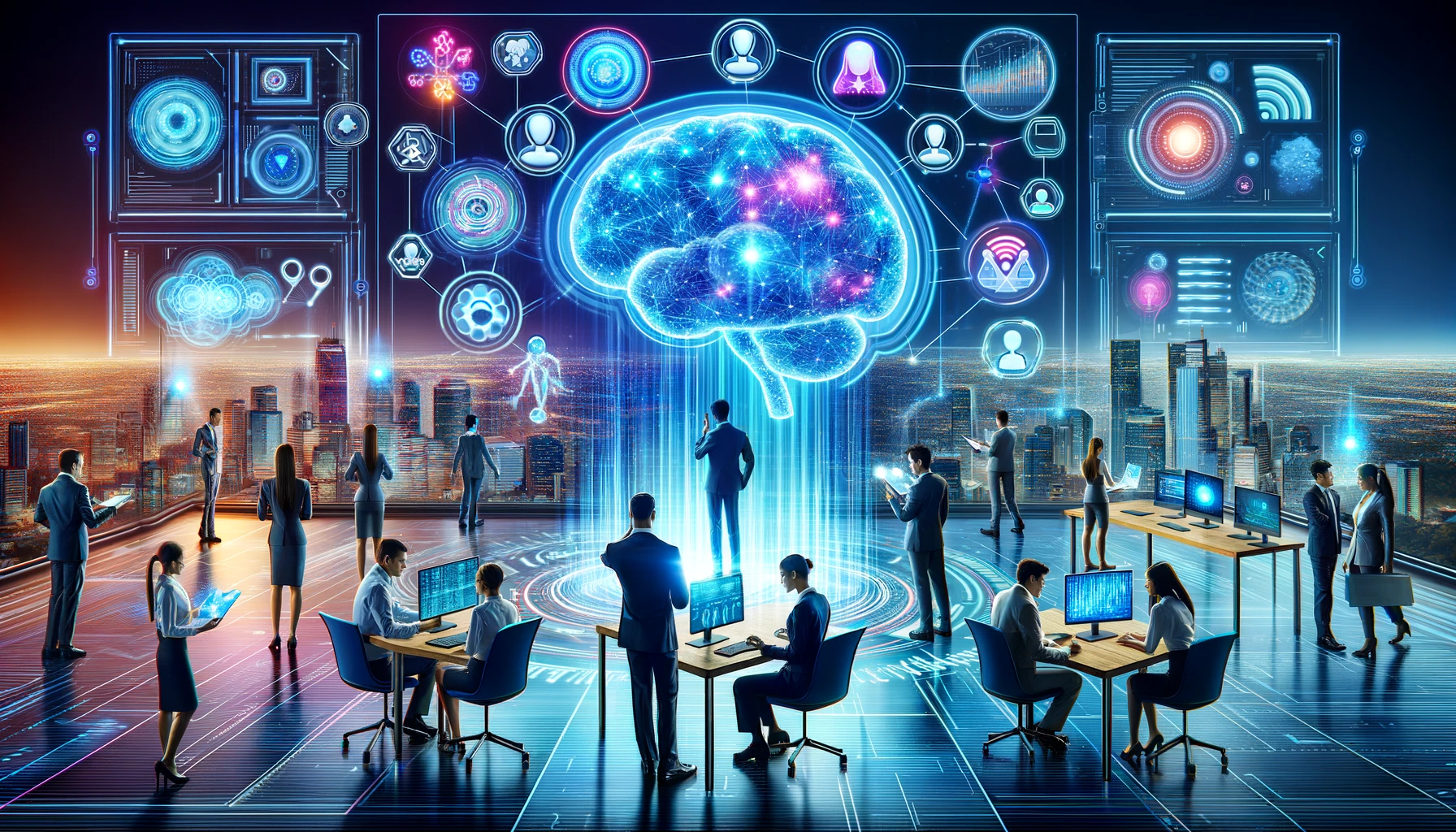Introduction to AI-Based Personal Assistants
AI-based personal assistants are sophisticated software programs designed to assist users in managing various tasks by employing artificial intelligence technologies. These assistants utilize natural language processing (NLP) and machine learning algorithms to understand user requests and respond appropriately. They can perform a vast array of functions, such as scheduling appointments, providing information, controlling smart home devices, and even managing to-do lists. As technology has advanced, these virtual assistants have become increasingly integral to both personal and professional life, reflecting a growing trend towards automation and enhanced productivity.
The core functionality of AI personal assistants lies in their ability to learn from user interactions, improving their responses over time. They can analyze and interpret spoken commands, enabling users to engage in a conversational manner. Popular examples of these assistants include Apple’s Siri, Google Assistant, and Amazon’s Alexa. Each assistant has its unique features, but they share the common goal of simplifying task management and enhancing user convenience.
In today’s fast-paced world, the relevance of AI-based personal assistants cannot be overstated. They provide support by streamlining everyday activities, ultimately enabling users to allocate more time to high-priority objectives and responsibilities. As businesses increasingly incorporate AI into their operations, the role of these personal assistants in professional settings is also expanding. The technology behind them not only enhances individual efficiency but also fosters collaboration and innovation across various industries.
As AI technology continues to evolve, users can expect even more advanced capabilities from their personal assistants, promising enhanced functionalities and improved user experiences. Overall, integrating AI into daily routines offers a glimpse into the future of personal productivity and efficiency.
Capabilities of AI-Based Personal Assistants
AI-based personal assistants have rapidly evolved, offering a multitude of functionalities that can significantly enhance daily life. One of the primary capabilities of these intelligent systems is managing schedules. By integrating with calendars, AI assistants can organize appointments, set reminders for important dates, and even suggest optimal meeting times, effectively ensuring that users remain organized and on track.
In addition to schedule management, these assistants excel at answering queries. Leveraging advanced natural language processing, they can provide information on a wide array of topics ranging from weather updates to general knowledge queries. This instant access to information not only saves time but also empowers users to make informed decisions promptly.
AI personal assistants also play a crucial role in controlling smart home devices. Through voice commands or mobile applications, users can adjust lighting, thermostats, and security systems, thereby creating a seamless smart home experience. This feature not only enhances convenience but also promotes energy efficiency by allowing users to monitor and control their home environment proactively.
Moreover, navigation assistance is another key capability of AI-based personal assistants. Users can request directions, traffic updates, or alternative routes, making it easier to navigate through unfamiliar areas. This can be particularly advantageous during daily commutes or while traveling, ensuring that individuals reach their destinations efficiently.
Lastly, these assistants are increasingly being employed for task automation. By learning user preferences, they can anticipate needs and automate repetitive tasks, such as sending messages or ordering groceries. This functionality allows users to allocate more time to their priorities, thus enhancing overall productivity. The integration of AI-based personal assistants into daily routines exemplifies how technology can streamline tasks and improve day-to-day efficiency.
Integrating AI Assistants into Daily Life
AI-based personal assistants have become increasingly prominent in our daily routines, offering a vast array of functionalities that can enhance our productivity and overall lifestyle. To effectively incorporate these intelligent tools into everyday life, it is essential to understand their capabilities and the best methods of engagement. One significant way to leverage an AI assistant is through task management. By utilizing voice commands or text input, users can quickly add appointments to their calendars, set reminders for important tasks, and create to-do lists. This not only helps streamline responsibilities but also reduces the likelihood of overlooking significant obligations.
Moreover, AI assistants can assist in time optimization. Scheduling tasks smartly can make a considerable difference in one’s day-to-day efficiency. For instance, many AI platforms allow users to analyze their routine habits and suggest optimal times for accomplishing specific tasks. This feature is particularly useful when managing multiple commitments, as the AI can seamlessly suggest suitable time slots for meetings or deadlines.
Learning new skills is another area where AI-based personal assistants excel. From language learning applications to workout routines and even cooking tutorials, these tools can provide tailored recommendations and resources to accommodate the user’s interests and goals. By simply asking the assistant questions or requesting educational content, individuals can expand their knowledge and skills in a convenient manner.
When it comes to selecting appropriate devices for AI assistants, smartphones, smart speakers, and wearables are among the most popular options. Mobile phones typically provide versatility and accessibility, while smart speakers can function as central command hubs for managing smart home devices. Wearable technology, such as smartwatches, allows users to stay connected and receive notifications on the go. By integrating these platforms, users can maximize the functionality of their AI personal assistants, making a significant impact on daily life.
Future of AI Personal Assistants
The advancement of AI technology continues to significantly shape the role of personal assistants in everyday life. As machines become increasingly adept at understanding human language and emotions, we can expect a future characterized by enhanced personalization and improved user experiences. In the next few years, AI-based personal assistants will likely develop better contextual understanding, enabling them to identify user preferences and tailor responses accordingly. This shift will allow for a more interactive and intuitive interaction, making these digital aides more valuable in managing daily tasks, schedules, and even personal habits.
Natural language processing (NLP) capabilities will also see substantial improvements. Future AI personal assistants are expected to understand nuances, slang, and regional dialects, which will create a more seamless communication experience. Users may find that their AI assistants can engage in more human-like conversations, allowing for easier task delegation and enhanced decision-making aide. Furthermore, as AI technology evolves, personal assistants may offer proactive suggestions based on behavioral patterns, making it even easier for users to maintain productivity.
However, the rise of sophisticated AI capabilities does not come without concerns, particularly regarding privacy and data security. As users increasingly rely on personal assistants for managing sensitive information, ensuring the secure handling of data becomes paramount. Developers will need to prioritize the ethical use of AI, creating transparent systems that earn users’ trust. Regulatory policies might also be implemented to protect user data and ensure that AI systems are designed with privacy in mind. Additionally, it is crucial to consider the implications of dependency on AI in personal settings, including potential impacts on interpersonal relationships and cognitive abilities.
In conclusion, the future of AI personal assistants is promising, marked by advancements that enhance personalization, communication, and user trust while raising significant ethical questions about data privacy and human-AI interaction.


 using WordPress and
using WordPress and
No responses yet